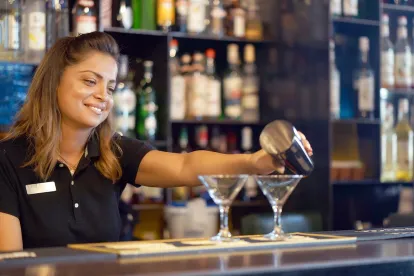On July 16, 2020, Governor Wolf’s new order went into effect further limiting the operating privileges of Pennsylvania’s hospitality businesses. The major changes are: (1) inside occupancy limited to 25% of capacity, (2) no on-premises alcohol sales without a “meal” as part of the transaction, and (3) indoor events are now limited to 25 people maximum including staff. We covered those changes in-depth in our previous blog post, “Pennsylvania Governor Rewinds Clock Restricting the Operations of Bars and Restaurants to Mitigate the Spread of the Coronavirus.” Immediately thereafter, all manufacturers, such as breweries, that do not have kitchens were concerned and wanted clarification of what a “meal” was. We did not get anything on that question until earlier this week when the Department of Health released this FAQ addressing some of the issues presented by the Governor’s new order. Last night, a full week after the Governor announced the new restrictions, we finally got some guidance from the Pennsylvania Liquor Control Board (PLCB).
The major changes to existing restrictions were listed in our previous blog, and this blog post will focus on what changed with the PLCB guidance and some practical tips for businesses.
Key Information From the PLCB “Meal” Guidance
-
A meal must be part of a transaction unless you do not have a kitchen or serve meals (like a brewery or other manufacturer).
-
A meal must be part of the transaction for an individual customer or a member of a group of customers must have a meal. In the instance of a group, it does seem that a group can purchase a single meal and meet the requirement for the entire group to get served alcoholic beverages.
-
Breweries or other manufacturers without kitchens can use third-party food providers such as food trucks to meet the meal requirement, and the business must verify the customer or group purchase a meal.
-
Drinks may be served while the meal is being consumed, but not after and guests must not linger after the meal is finished, which will likely lead to some slow eaters and businesses putting time limits on tables.
-
To-go rules still apply, and the purchase of a meal is not required. This includes a manufactures ability to sell its products to go in sealed containers, a restaurant or hotel licensees’ ability to sell cocktails or beer to go (or wine to go with a wine expanded permit). Generally, to go products must be in sealed containers and not consumed until off the licensed premises.
What Constitutes a Meal? Great Question, Not a Great Answer
Unfortunately, we still have plenty of room for interpretation other than a “meal” is not a snack. From the PLCB guidance: “The term “meal” is defined in section 406 of the Liquor Code as “food prepared on the premises, sufficient to constitute breakfast, lunch or dinner.” The definition expressly states that a snack, such as pretzels, popcorn, chips or similar food does not meet the definition of a meal.” We believe it is going to be difficult for enforcement actions if a business is taking the necessary steps to ensure food is available and purchased prior to the sale of alcohol, and such food is not a snack as listed above. Interestingly, we have observed many retail licensees, which are required to have prepared foods available to meet licensing requirements at all times, use prepackaged cheese and cracker packs to meet those requirements. So, maybe Lunchables and Uncrustables constitute a meal after all. The safe plan is to ensure a third-party food provider is available to sell meals if your business does not have a kitchen or health permit to prepare food.



 />i
/>i

